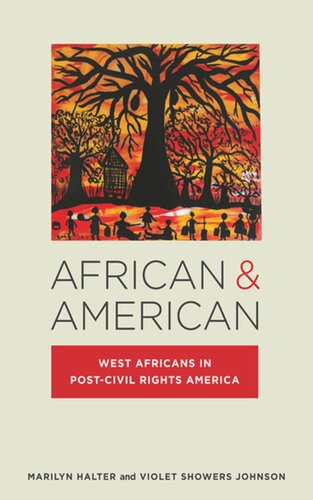

Most ebook files are in PDF format, so you can easily read them using various software such as Foxit Reader or directly on the Google Chrome browser.
Some ebook files are released by publishers in other formats such as .awz, .mobi, .epub, .fb2, etc. You may need to install specific software to read these formats on mobile/PC, such as Calibre.
Please read the tutorial at this link: https://ebookbell.com/faq
We offer FREE conversion to the popular formats you request; however, this may take some time. Therefore, right after payment, please email us, and we will try to provide the service as quickly as possible.
For some exceptional file formats or broken links (if any), please refrain from opening any disputes. Instead, email us first, and we will try to assist within a maximum of 6 hours.
EbookBell Team

5.0
98 reviewsExamines what it means to be African and American through the stories of recent West African immigrants
African & American tells the story of the much overlooked experience of first and second generation West African
immigrants and refugees in the United States during the last forty years. Interrogating the complex role of post-colonialism in the recent history of black America, Marilyn Halter and Violet Showers Johnson highlight the intricate patterns of emigrant work and family adaptation, the evolving global ties with Africa and Europe, and the translocal connections among the West African enclaves in the United States.
Drawing on a rich variety of sources, including original interviews, personal narratives, cultural and historical analysis, and documentary and demographic evidence, African & American explores issues of cultural identity formation and socioeconomic incorporation among this new West African diaspora. Bringing the experiences of those of recent African ancestry from the periphery to the center of current debates in the fields of immigration, ethnic, and African American studies, Halter and Johnson examine the impact this community has had on the changing meaning of “African Americanness” and address the provocative question of whether West African immigrants are, indeed, becoming the newest African Americans.